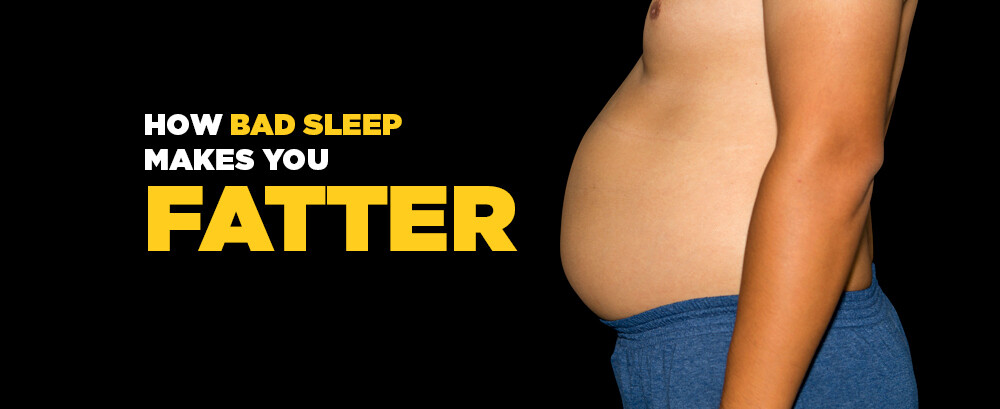
Losing sleep makes you hungrier and makes your body burn fat slowly. Here's why and how to fix it.
Most people need about 8 hours of sleep to function optimally and stay healthy, but gene variations can affect how long a person needs to sleep.
For example, some folks have genetic variants that lead to a shorter circadian cycle, allowing them to function well with less sleep (7 hours). Others have variants requiring longer sleep (9 hours) to align with their biological rhythm. A tiny portion of the population (1-3%) does fine with 6 hours due to a freaky gene mutation.
The problem? Many people think they're mutated X-Men who require less sleep when, in reality, their health and physique goals are compromised. How do you know? See if any of these ring a bell:
- You're always hungry and most tempted by energy-dense snacks: high-carb and/or high-fat.
- When you diet, fat loss is abnormally slow.
- It's hard to get motivated to train.
- Without even changing your diet, body fat creeps up.
All these are signs of sleep deprivation. A recent narrative review published in Nutrients examined how that happens. Let's sum it up, then talk about the easiest sleep fix.

Why Sleep Loss Makes You Fat
According to the study, here's what happens when most people get 6 hours or less of sleep:
- Hormonal Imbalances: Insufficient sleep alters hormones regulating appetite, increasing ghrelin (the hunger hormone) by 20-30%. Bad sleep also decreases leptin (the satiety or fullness hormone) by 15-20%. The result? A sleep-deprived person typically consumes 200 to 500 extra calories the next day.
- Metabolic Changes: Sleep loss reduces insulin sensitivity by 20-30%, impairs glucose metabolism, and increases fat storage. Sleep deprivation during a diet decreases fat loss by up to 55%.
- Behavioral Effects: Fatigue from sleep loss reduces training motivation and promotes unhealthy food choices.
- Weight Loss Maintenance: Chronic sleep deprivation undermines long-term weight maintenance by sustaining hormonal and metabolic disruptions, increasing the likelihood of fat regain. Elevated cortisol further promotes fat accumulation, especially in the abdominal region.
- Mechanisms: Sleep deprivation affects the brain's reward system, increasing cravings for palatable foods, and disrupts circadian rhythms, further impacting metabolism.

The Easiest Fix
Most troubled sleepers have a magnesium deficiency, and up to 80% of the US population is deficient in this essential mineral.
Magnesium promotes sleep by regulating neurotransmitters and hormones involved in the sleep-wake cycle. It acts as a natural relaxant by binding to GABA receptors in the brain, enhancing GABA activity, which calms neural activity and promotes relaxation.
Magnesium also helps regulate melatonin production, the hormone responsible for signaling sleep onset, by supporting the pineal gland's function. Magnesium also reduces cortisol levels, mitigating stress that disrupts sleep. By relaxing muscles and reducing inflammation, magnesium further creates a conducive state for restful sleep, improving sleep onset and quality.
"But I eat magnesium-containing foods and take a magnesium supplement!" Even so, modern farming methods reduce the magnesium content of food, and supplementation is great if you're absorbing it. For best results, use Albion-chelated magnesium: 400 mg of glycinate chelate.
Elitepro Vital Minerals (Buy at Amazon) contains 400 mg plus other minerals that are hard to get from food alone. Take four tablets nightly.

How long does it take to correct a magnesium deficiency? Most people feel the difference after a week or two of consistent supplementation. Severe deficiencies take longer, but a chelated formula speeds things up.
Reference
- Papatriantafyllou, et al. Sleep Deprivation: Effects on Weight Loss and Weight Loss Maintenance. Nutrients 2022 Apr 8;14(8):1549. doi: 10.3390/nu14081549.